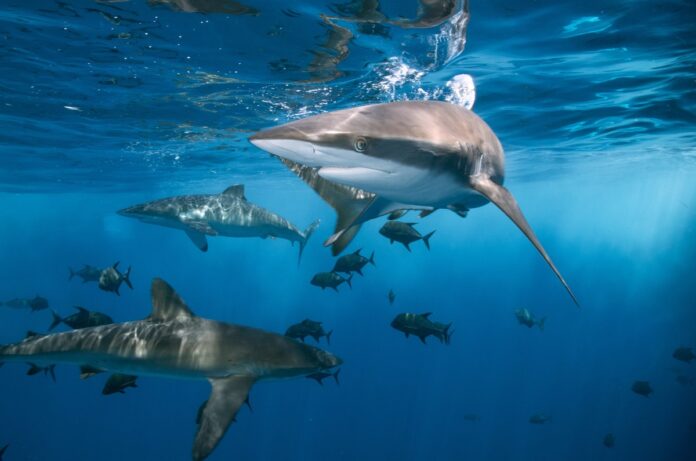MIAMI, FLORIDA – A recent episode of Discovery Channel’s Shark Week has brought to light a startling and bizarre phenomenon that has scientists and environmentalists concerned. Sharks off the Florida coast may be indulging in a dangerous diet, one that includes narcotics like cocaine dumped into the sea.
A Disturbing Discovery
The episode, aptly titled “Cocaine Sharks,” delves into the theory that sharks might be feeding on drugs discarded off the Florida coast, leading to erratic and abnormal behavior. The title references the infamous “cocaine bear” incident from 1985, where a bear consumed nearly 75 pounds of cocaine.
Dr. Tracy Fanara, a Florida-based environmental engineer, and British marine biologist Tom Hird led the research team that conducted a series of experiments to explore this phenomenon. Their findings have raised eyebrows and prompted further investigation.
The Evidence
The research team observed unusual behavior in some sharks, such as a hammerhead erratically charging towards them and a sandbar shark swimming in circles, fixating on an imaginary object. To test the theory, they created packages resembling cocaine bales and filled balls of bait with highly concentrated fish powder to simulate cocaine. The sharks’ response was astonishing, as they swam for the bales and took bites out of them.
“It set their brains aflame. It was crazy,” Hird commented on the show, likening the reaction to that of catnip on felines.
The Real Issue
The catchy title of the episode serves to highlight a grave environmental concern. “Everything we use, manufacture, and consume ends up in our wastewater streams and natural water bodies,” Fanara explained. This exposure to substances like cocaine, methamphetamines, and ketamine has previously been shown to affect fish.
With the US Coast Guard recovering more than $186 million worth of illegal narcotics in the Caribbean and Atlantic last month, the possibility of sharks being affected by these chemicals is “very plausible,” according to Fanara.
A Call for Further Research
While the observations do not conclusively confirm that sharks consume drugs, the researchers hope that the show will lead to more extensive research in the area. The solubility of cocaine means that even a slight opening in the packages can destroy their structural integrity, releasing the drug into the water.
Conclusion
The phenomenon of “cocaine sharks” is more than just a sensational headline. It underscores the broader issue of pollution and the impact of human activities on marine life. The findings of this research are a stark reminder of the interconnectedness of our ecosystem and the urgent need to address environmental challenges.
As the scientific community continues to explore this unusual occurrence, the episode serves as a wake-up call to society about the unintended consequences of our actions on the environment.


